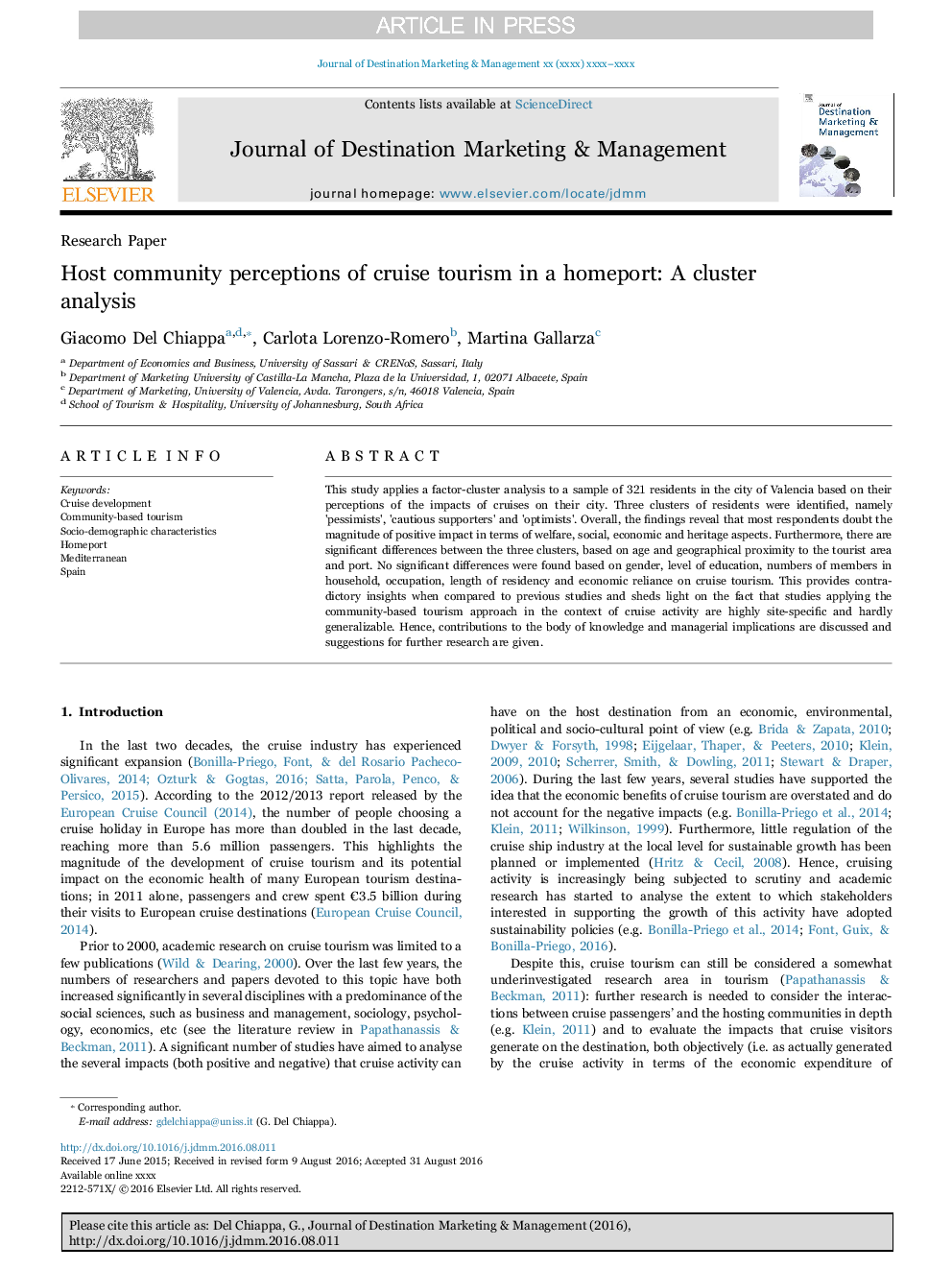ترجمه فارسی عنوان مقاله
ادراکات میزبان جامعه از گردشگری کروز در یک مسابقه خانگی: تجزیه خوشه ای
عنوان انگلیسی
Host community perceptions of cruise tourism in a homeport: A cluster analysis
| کد مقاله | سال انتشار | تعداد صفحات مقاله انگلیسی |
|---|---|---|
| 152866 | 2018 | 12 صفحه PDF |
منبع

Publisher : Elsevier - Science Direct (الزویر - ساینس دایرکت)
Journal : Journal of Destination Marketing & Management, Volume 7, March 2018, Pages 170-181
ترجمه کلمات کلیدی
توسعه کروز، گردشگری مبتنی بر جامعه خصوصیات اجتماعی و دموگرافی، درب خانه، مدیترانه، اسپانیا،
کلمات کلیدی انگلیسی
Cruise development; Community-based tourism; Socio-demographic characteristics; Homeport; Mediterranean; Spain;
ترجمه چکیده
این مطالعه با استفاده از تجزیه و تحلیل خوشه ای فاکتور به یک نمونه از 321 ساکن در شهر والنسیا بر اساس ادراکات آنها از تاثیرات سفرهای کروز در شهرستان خود. سه خوشه از ساکنان شناسایی شد، یعنی "بدبینان"، "حامیان محتاط" و "خوش بین". به طور کلی، یافته های نشان می دهد که اکثر پاسخ دهندگان، میزان تاثیر مثبت را از لحاظ رفاه، اجتماعی، اقتصادی و میراث شکی می دانند. علاوه بر این، بین سه خوشه، با توجه به سن و نزدیکی جغرافیایی به منطقه گردشگری و بندر، اختلاف قابل توجهی وجود دارد. تفاوت معنی داری بر اساس جنس، سطح تحصیلات، تعداد اعضای خانواده، مشاغل، طول اقامت و وابستگی اقتصادی به گردشگری کروز مشاهده نشد. این در مقایسه با مطالعات قبلی، بینش متضادی را فراهم می آورد و در مورد این واقعیت که مطالعاتی که رویکرد گردشگری مبتنی بر جامعه را در زمینه فعالیت کروز فعالیت می دهند، بسیار متفاوتی هستند و به سختی قابل تعمیم است. از این رو، مشارکت در دانش و مفاهیم مدیریتی مورد بحث قرار گرفته و پیشنهادات برای تحقیق بیشتر داده می شود.

